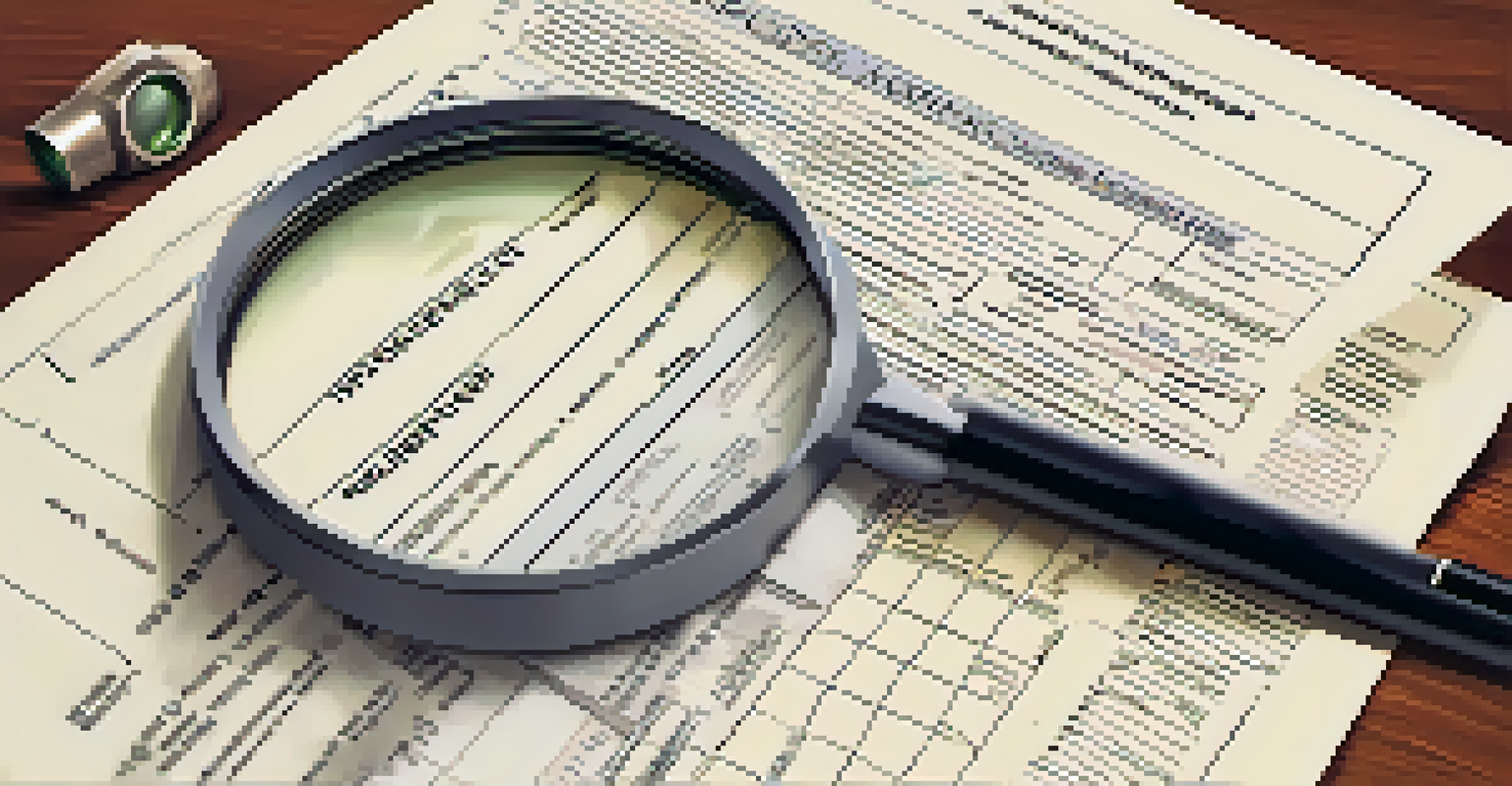Home Inspection: A Buyer’s Guide to Understanding Results

What is a Home Inspection and Why is it Important?
A home inspection is a thorough evaluation of a property's condition, usually conducted before a sale. This process helps buyers identify potential issues that could affect their investment. Think of it as a check-up for your future home, ensuring all major systems are functioning properly.
An investment in knowledge pays the best interest.
During the inspection, a qualified inspector examines key components, like the roof, plumbing, electrical systems, and structural integrity. This comprehensive assessment can uncover hidden problems that might not be visible during a casual walkthrough. Without it, you might end up with unexpected repair costs down the line.
Ultimately, a home inspection provides peace of mind, allowing buyers to make informed decisions. Knowing the state of the home can empower you to negotiate repairs or reassess your offer. It’s a crucial step in the home-buying journey that shouldn’t be overlooked.
Understanding the Home Inspection Report
After the inspection, you’ll receive a detailed report outlining the inspector's findings. This document can seem overwhelming at first glance, but it's important to break it down into manageable sections. Typically, the report will cover major areas like structure, systems, and safety concerns, along with photos and descriptions.

Pay close attention to the summary section, which highlights critical issues that need immediate attention. These might include significant repairs or safety hazards, while minor issues can often be addressed later. Understanding the severity of each issue can help you prioritize your next steps.
Home Inspections Ensure Peace of Mind
A home inspection identifies potential issues, empowering buyers to make informed decisions about their investment.
Don’t hesitate to ask your inspector questions about the report. They are there to help you understand what the findings mean and how they may impact your purchase. Clear communication is key to making sense of the information and ensuring you’re fully informed.
Common Issues Found During Home Inspections
Some issues are more prevalent in home inspections than others, and being aware of them can help you prepare. For instance, roof damage, plumbing leaks, and electrical issues are commonly reported problems. These can range from minor repairs to significant concerns that might require immediate attention.
The bitterness of poor quality remains long after the sweetness of low price is forgotten.
Another frequent issue is inadequate insulation or HVAC problems, which can lead to increased energy costs. A well-functioning system is crucial for comfort and efficiency, so understanding its condition is vital. Don’t underestimate the importance of checking for pest infestations either, as they can lead to serious structural damage.
Recognizing these common issues allows you to approach negotiations with a clear understanding of what you’re facing. It’s not just about identifying problems; it’s about finding solutions that work for both you and the seller. This knowledge can lead to a smoother home-buying process.
How to Address Inspection Findings with the Seller
Once you have your inspection report, it’s time to strategize how to address the findings with the seller. Start by identifying which issues are deal-breakers for you and which are minor concerns. This will help you prioritize your negotiations effectively.
You can request repairs, ask for a reduction in price, or even negotiate closing credits to cover the cost of repairs. It’s essential to remain reasonable and open to compromise, as this can foster a more collaborative environment. Remember, sellers are often willing to negotiate, especially if they want to close the deal.
Understanding the Inspection Report
The inspection report breaks down critical findings, helping buyers prioritize repairs and communicate effectively with sellers.
Approach the conversation with a clear understanding of the inspection results and your own priorities. The goal is to reach a mutually beneficial agreement that allows you to move forward with confidence. Open communication can make all the difference in navigating these discussions.
The Role of a Real Estate Agent in the Inspection Process
A knowledgeable real estate agent can be an invaluable resource during the inspection process. They can help you select a qualified inspector and provide insights into what to expect. Their experience can guide you through the complexities of the process.
Your agent can also assist in interpreting the inspection report, helping you understand what findings are most critical. They’ll know which issues are common in your local market and can advise you on how to approach negotiations with the seller. Their expertise can save you time and potential headaches.
Ultimately, having a real estate agent in your corner can make the home-buying process smoother. They will advocate for your interests and help you navigate any challenges that arise. A strong partnership with your agent can lead to a more successful outcome.
When to Walk Away from a Deal
While a home inspection can provide clarity, it may also reveal serious issues that make you reconsider your purchase. If the inspection uncovers major structural problems, extensive pest damage, or significant safety hazards, it might be time to walk away. Your safety and financial well-being should always come first.
Additionally, if the seller is unwilling to negotiate on critical repairs or price adjustments, it could be a red flag. A lack of transparency or unwillingness to address concerns can indicate potential issues down the road. Trust your instincts; if something feels off, it’s better to explore other options.
Follow-Up Inspections Are Essential
Conducting follow-up inspections ensures that any repairs are completed satisfactorily, providing additional peace of mind before moving in.
Walking away is never an easy decision, but it’s sometimes the best choice for your long-term happiness. By prioritizing your needs and being informed, you can avoid costly mistakes. Remember, there are plenty of homes out there; don’t settle for one that doesn’t meet your standards.
The Importance of Follow-Up Inspections
After addressing any issues with the seller, it’s wise to consider follow-up inspections, especially for major repairs. This ensures that the work has been completed to a satisfactory standard. It’s like going for a follow-up appointment after a medical treatment; you want to confirm you’re on the right track.
Follow-up inspections can also provide peace of mind, knowing that your future home is safe and secure. This step can help you avoid future headaches by catching any lingering problems early on. It’s a proactive approach that can save you time and money in the long run.

Always communicate with your inspector about the need for follow-up evaluations. They can guide you on what to look for and ensure that everything is in order. Being diligent now will pay off in your new home.